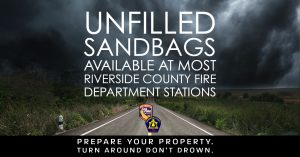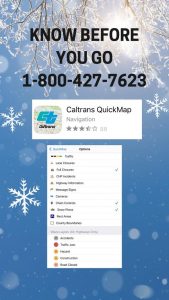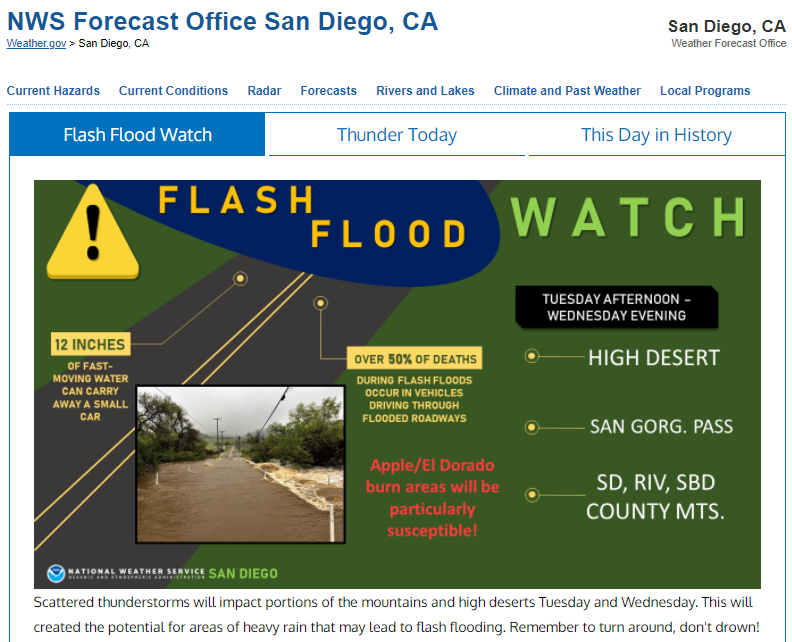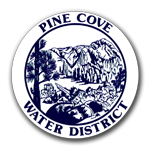What’s the weather like up there?
We hear this question a lot!
Did you know that we have links to weather station data and highway cameras on our webpage?
Be in the know – click here for weather station data and here for the highway cameras
Weather
Archive for Weather
We hear this question a lot!
Did you know that we have links to weather station data and highway cameras on our webpage?
Be in the know – click here for weather station data and here for the highway cameras
The rains and storms have begun. Is your home ready?
CAL FIRE/Riverside County Fire Department and San Bernardino County Fire have put out information about sandbag and sand availability through the fire departments, as well as best use practices. (Click on the links for more information)

As a Pine Cove resident, we offer a limited amount of FREE unfilled sand bags from our office as well.
Additional safety information from Idyllwild Fire Protection District on Facebook includes road safety information.

Stay safe out there if you have to go out.
The weather station is predicting some inclement weather coming up soon. Here are some reminders of important steps you can take to protect yourself, your pet (if applicable) and your dwelling during very cold, icy and snowy conditions. These steps will help you be prepared for any extreme freeze in your area and help you stay safe and warm.
Pitch In:
When cold weather and extreme snow storms hit, it is important for everyone to pitch in and be a community. Things you can do to help include: If you are clearing snow from your car or around it, please place any snow onto grassy areas. Please don’t place snow onto sidewalks, roadways, fire hydrants or other areas that have already been cleared.
Heat:
Set your heater on at least 60-65 degrees and leave it on until any threat of a freeze is over. If there is an extreme risk of freezing, leave your faucets dripping a very small amount of water – both your hot water and cold water. Leave cabinet doors under any sink area open so warm air can circulate around pipes.
Space Heaters:
We recommend that you not utilize a space heater unless absolutely necessary. But, if you are utilizing one there are important steps you must take. Please read the manufacturer’s instructions and warning labels carefully.
Some key things to consider include:
Keep it at least three feet away from any other object – including papers, clothing and rugs – and maintain a three-foot radius around the space heaters. Place space heaters on level, flat surfaces. Never place heaters on cabinets, tables, furniture or carpet. Be sure to never leave a space heater unattended, and turn it off when you’re leaving a room or going to sleep. Plug space heaters directly into a wall outlet. Do not use an extension cord or power strip, which could overheat. Do not plug any other electrical devices into the same outlet as the heater.
Ovens & Candles:
Please do not in any instance ever use your oven to provide any heat. While it is ok to cook with the oven door closed, leaving oven doors open, even just a crack, can omit carbon monoxide (CO), which can lead to carbon monoxide poisoning. Never leave lit candles unattended or burning close to any papers, clothing, rugs or curtains.
Other Ways to Stay Warm at Home:
Consider placing rolled up towels at the base of any exterior door – especially any patio doors. This will help keep any slight cold drafts from entering. If needed, grab a blanket and a sweatshirt and head over to the warming center located at the town library. Consider grabbing a hot cup of coffee or tea on your way.
No Frozen Pipes:
Keep faucets running at a slow drip. This will ensure constant water circulation through the pipes and help prevent the water from standing still and freezing. Also, keep your dwelling heated to at least 60-65 degrees Fahrenheit. If the temperature falls below 60 degrees, the pipes may freeze and break, causing a leak that will more than likely affect not only your home, but all those surrounding you.
Braving the Cold:
If you have to go outside, dress in lightweight layers. Using several thinner layers can provide better insulation than one or two thick layers. If possible, the first layer should be long underwear made out of a nonabsorbent material. If you have to be outside for an extended period of time, make sure your feet stay dry. This is key to keeping our bodies warm. To keep feet dry in cold, snowy weather, wear waterproof boots and socks made of fleece, IsoWool or similar type fabrics. In extreme winter conditions, ice accumulation is often inevitable. Please take extra caution when navigating exterior stair wells, sidewalks, parking garage/lots, etc..
Keeping Pets Safe & Warm:
Our pets will need to go outside regardless of weather conditions. So if you are a pet owner, put booties on their paws before taking them outside. Cold air, sleet and snow can give pets chapped paws and itchy, flaking skin. And if their paws aren’t covered, pets can risk exposure to dangerous chemicals from ice-melting agents that they may then lick off of their bare paws. Again, if you don’t have booties available, your socks will do the trick. And be sure to check their paws when they come inside as chunks of ice can get stuck in between their paws.
Don’t Forget Your Ice and Snow-Covered Car:
Keep your gas tank full. Cold temperatures can cause condensation to form on the walls of a nearly empty gas tank. Soon, that water can drip down into the gas. Since water is heavier than gas, it will eventually sink to the bottom of the tank, where it can make its way into the fuel lines and freeze, blocking the flow of gas into your engine and stranding you.
Stay safe and warm this season.

The Pine Cove Water District office will be closed on Monday, September 5th in honor of Labor Day. We will resume normal business hours on Tuesday, September 6th at 9 a.m. If you have a water emergency, there will be someone on call. You can call the office and listen to the recorded message or call 951-294-8282, which is our emergency number. Remember, this number is for true water emergencies only. Please wait until Tuesday to call about an other water issues. Our normal business hours will continue Tuesday through Friday, from 9 am until 4 pm.
Happy Labor Day!!!
Labor Day, the first Monday in September, is a creation of the labor movement and is dedicated to the social and economic achievements of American workers. It constitutes a yearly national tribute to the contributions workers have made to the strength, prosperity, and well-being of our country.
The form that the observance and celebration of Labor Day should take was outlined in the first proposal of the holiday — a street parade to exhibit to the public “the strength and esprit de corps of the trade and labor organizations” of the community, followed by a festival for the recreation and amusement of the workers and their families.
More information can be found at https://www.dol.gov/general/laborday/history
The American Red Cross regularly puts out safety precautions and as this coming weekend is going to be another hot one, there are additional precautions to consider.
Temperatures are going to drop again this weekend. If you are leaving your mountain home, be sure to turn off the customer valve and empty all the drains. Leave a faucet open just a crack to make sure there is room for any excess water to come out rather than freeze and bust your pipes. You may want to look into insulating your pipes if they are not already.
We do not forgive water bills for leaks or busted pipes. Any water that runs through the meter will be charged accordingly.
If you don’t know where your customer shut off valve is at the street, please call during normal business hours to waive a service fee and we’ll guide you. If you call after hours, there will be a fee starting at $15. An emergency leak or busted pipe call after hours could incur a fee starting at $50.
If you notice any leaks, call us immediately. Upon confirmation of the leak you could receive a $25 gift card to a restaurant in town.
Regular Office Hours 9am – 4pm 951-659-2675
After Hours Emergency Line 951-294-8282

Don’t let this be you!
It’s a beautiful sight to have all of this fresh snow on our beautiful mountain. It’s always recommended to stay home rather than chance the slippery roads. If you do have to leave your house, here are some tips and tricks to assist you.
Remove snow from the top of your vehicle
Although not illegal in California it could be potentially dangerous.
While you might think that clearing the snow /ice is just for your visibility, there is quite a hazard to leaving snow on the top.
Leaving snow on top of your vehicle could result in bits falling forward onto the windshield causing low visibility but it can also fall backwards onto cars and pedestrians behind you causing “ice missiles”, in which sheets or blocks of snow and ice fly off roofs or windshields of cars and trucks, endangering those in vehicles behind them. Ice missiles can distract drivers and cause them to swerve into other cars. And they can crack windshields, and sometimes cause injuries — even deaths.
If you haven’t experienced digging your car out, I highly suggest you give yourself at least an hour to do so. Click here for some tips from WikiHow.
Road and driving safety
Check weather and snow conditions and plan accordingly. Avoid driving during a snowstorm. Snow plows will be working and visibility might be low. Visit weather.gov for weather conditions and forecast. Check Caltrans for road conditions/traffic, including chain controls, road closures and more. Ensure you understand chain control requirements and how to install them (practice before coming).
Plan for safety and comfort. Make sure you start your trip with a full tank of gas. Tell someone where you’re going and when you’ll return; check in when you get back. Pack water, high-energy meals, and snacks — and pack more than you think you’ll need. Dress in layers of warm, waterproof clothing, including extra layers. Don’t rely solely on GPS-based maps.
Park in safe, legal spots. Never block traffic or driveways, even to install snow chains. Play on open public lands only. Choose a hill that does not send sledders into roadways.
Well being
Be sure to hydrate and eat frequently throughout the day. Pay attention to weather conditions and be prepared to leave quickly if conditions change or worsen. Keep an eye on the gas gauge; fill up if low.
With this colder weather, please be careful while driving on the icy roads. As always remember to winterize your home and turn off your water at the customer valve before leaving your mountain home.
Stay safe everyone!
~as posted in the Idyllwild Town Crier Dec. 23, 2021 – Page A3
The U.S. Forest Service closed the Humber Park Trailhead parking lot last week to vehicles due to last week’s winter storm. “Once the parking lot road becomes iced over, many cars slide or get stuck in its steeper sections. Staff will monitor and reopen when/if conditions become safe again,” according to the San Bernardino National Forest’s (SBNF) Twitter post.
California Highway Patrol Officer Graham Aanestad had five vehicles towed for blocking Humber Park between last Saturday and Sunday.
SBNF also issued a snow-play advisory on its website considering last week’s snow and the coming week’s predictions.
SBNF expects large crowds over the holiday weekend because of snow. It asks visitors to:
• Research a destination. A few snow-play areas require Adventure Passes to park. Visit https://www.fs.usda.gov/detailfull/r5/passes-permits/recreation/?cid=STELPRDB5181410&width=full to search for a designation.
• Check weather and snow conditions and plan accordingly. Avoid driving during a snowstorm. Snow plows will be working and visibility might be low. Visit weather.gov for weather conditions and forecast. Check the Caltrans; http://quickmap.dot.ca.gov for road conditions/traffic, including chain controls, road closures and more. Ensure you understand chain control requirements and how to install them (practice before coming).
• Plan for safety and comfort. Make sure you start your trip with a full tank of gas. Tell someone where you’re going and when you’ll return; check in when you get back. Pack water, high-energy meals, and snacks — and pack more than you think you’ll need. Dress in layers of warm, waterproof clothing, including extra layers. Don’t rely solely on GPS-based maps.
• Park in safe, legal spots. Never block traffic or driveways, even to install snow chains. Play on open public lands only. Choose a hill that does not send sledders into roadways.
• Be sure to hydrate and eat frequently throughout the day. Pay attention to weather conditions and be prepared to leave quickly if conditions change or worsen. Keep an eye on the gas gauge; fill up if low.
• Leave no trace. Pack out all trash, leftover food and waste. Remember to display your recreation pass.
Posted in: Community, Hazardous Weather Outlook, Holidays, Snow, Weather, Winter
Leave a Comment (0) →Just a quick update that I received from Jon King and his San Jacinto Trail Report. Want to see the full report? Click here and give him a follow.
Full fire restrictions are in place on Forest Service lands, as described here. All campfires anywhere in the San Jacinto mountains, including at all USFS campgrounds and yellow post sites, are now prohibited. The total fire ban has finally been extended to Riverside County lands starting 23rd August, including for example the Hurkey Creek campground (thanks to Dan Roberts for updates on the county situation).
The U.S. Forest Service ranger station in Idyllwild remains closed due to USFS coronavirus protocols. Apparently it is unlikely to reopen before October, but possibly much later. Hiking and camping permits are nevertheless required for USFS lands, and should be available at the kiosk outside the ranger station. The State Park ranger station reopened about six months ago.
WEATHER A few days of temperatures around (or even below!) seasonal for the first time in two months came to an end early this week. Daytime high temperatures will again be above average for August starting Wednesday 25th, with overnight low temperatures in particular being well above seasonal, before cooling again to about average in the first couple of days of September. As mentioned above, monsoonal rains are a possibility from 29th August to at least 2nd September. Fire risk remains severe.
Taken from the National Weather Service https://www.weather.gov/sgx/

The County of Riverside, Emergency Management Department has put out a PDF about Staying Cool and as well as a list of Riverside County Cool Centers. Stay hydrated and cool.
Posted in: Weather
Leave a Comment (0) →Pine Cove Water District
24917 Marion Ridge Road • P.O. Box 2296 • Idyllwild CA 92549-2296 • 951.659.2675
